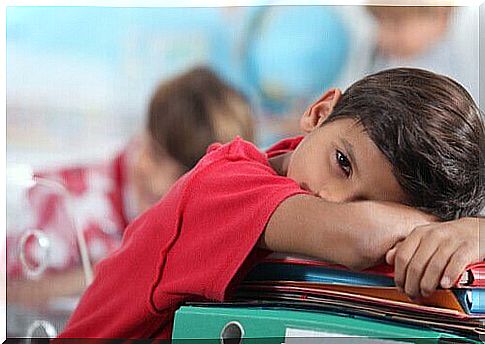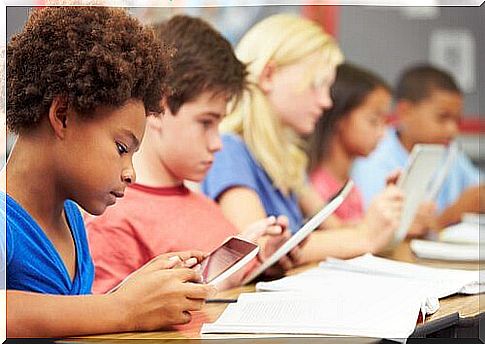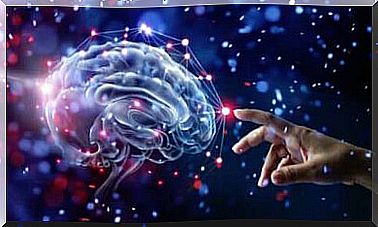The Three Great Contradictions In Education

Niels Bohr said that “the opposite of a little truth is always wrong. On the other hand, the opposites of the great truths can also be considered as true ”. This sentence perfectly illustrates how, very often, society maintains a series of “great truths” that contradict each other. This phenomenon is called “antinomies”. These are pairs of truths which, although both lazy to be true, contradict each other. We will speak in this article of 3 antinomies or contradictions of education.
Analyzing these educational contradictions helps us to understand, to a large extent, the principles that govern the system and its inconsistencies. We thus perceive the conflict existing between what we believe it is, what we would like it to be and what it is. The dissonance between these three states results in a series of contradictory statements to reconcile these differences.
The contradictions of education
The three major contradictions in education are: (a) Education for development Vs education for culture. (b) Intrapsychic learning Vs situational learning. (c) Local knowledge Vs social knowledge. We will develop each of these antinomies in detail below.

Education for development and education for culture
The first of the contradictions of education revolves around the objectives of the latter. Many people think of goals as the personal development of the individual. In other words, that the latter reaches its maximum potential. So that at the same time we can achieve a comprehensive development of the company. However, another objective of the education system is to imbue / incorporate the individual with vernacular culture. Indeed, school is not only based on instruction. It also teaches a way of being and behaving.
It may at first seem that personal development and the transmission of culture are not contradictory objectives. These are in fact irreconcilable aspects. The problem is that if the culture itself is transmitted when it is reproduced, so are different associated objectives, such as political or economic.
For example, a capitalist and industrialized society is based on a very powerful labor force and a populated middle class. It is therefore normal for the education system to focus on unskilled and semi-skilled workers. We manage e n tra nsmettant culture, that the company is stable. And an education based on personal development would make the culture unstable. It could indeed bring about social change.
This contradiction exists because the population, to a large extent, wants to develop and increase their intellectual potential. On the other hand, the established culture does not cease to be a kind of treat as it gives us security and a sense of control. Culture and development bring us pleasure and satisfaction. The antinomy is found in the attempt to dispose of both. Moreover, the pursuit of these two objectives renders the education system inefficient. This also induces many errors. So we need to ask ourselves what is the goal we really want for education.
Child-directed learning vs. situational learning
Another of the great contradictions in education is the way we teach and assess children . There is a strong tendency within the education system to classify children according to their performance (grades, class participation, comparisons…). The result is the idea that it is the child, through his or her abilities, who benefits from the resources of the school. Conversely, we also believe that learning is situational. So we think it will be easier for the child to use school resources if the environment makes it easier.
The contradiction here is more complex. To regard the child or the context as responsible for the learning is a mistake. It is true that both factors will influence the education of the child. However, empowering one or the other will radically change education policy.

If we are based on children’s learning, the logic is to provide the resources according to their demands. These requests will depend on their capacity, but also on their motivation. Children will be in a way the directors of their own learning. The perspective will change, however, if we offer situational learning. In this case, it will be the educational context that will drive the learning.
Our education system is taking action from both perspectives. This generates, like the previous antinomy, inefficiency and inconsistencies. Choosing one position or another can be dangerous. Particularly with regard to the political and economic context surrounding education. Hence the appearance of this contradiction. The point of balance we seek should be based on research and scientific studies.
Local knowledge Vs social knowledge
The last of the contradictions of education is perhaps the least explicit of the educational debate. This antinomy revolves around how we should judge the ways of thinking, the ways of giving / accepting meaning, as well as the ways of experiencing the world. If we take a constructivist point of view, we would find relativism since reality is constructed by an interpreter.
On the one hand we have the “great truth” that local knowledge is legitimate in itself. And we also advocate a global confluence on the interpretation of reality. These two statements are clearly contradictory. If we seek global knowledge, maintaining local knowledge of small companies and groups would hinder it.
A very complicated debate appears here. Indeed, each population or society has developed its local knowledge because of the context and the time in which it exists. This gives it security and control. On the other hand, global knowledge offers us a universal framework for action. This can be very useful for us to progress in cooperation. Even if it also carries serious dangers. As with the other antinomies, it is essential to perform an analysis. And to study in depth to determine what is the best solution to this contradiction.










